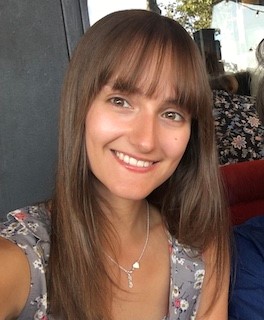Rachel Mckeown rlm71@cam.ac.uk
United Kingdom
Physiology, Development and Neuroscience, St Catharine’s College
Thesis title: The Roles and Interactions of Chemical and Mechanical Signals in Nervous System Development
Research interests:
1. Neuroscience
2. Developmental Biology
3. Cell Biology
4. Physical Biology
To form a functioning nervous system, neurons must connect in appropriate ways. Developing neurons extend processes called axons which may travel relatively long distances to their target. How do they find their way?
The environment provides guidance cues that form a ‘roadmap’. Many chemical guidance cues (peptides/proteins) can regulate axon behaviour (e.g. attract or repel them), and so guide the axon. However, recent work has shown that neurons also respond to mechanical features (e.g. stiffness), and gradients of stiffness can also cause extending axons to turn.
My PhD will focus on how these cues work together in the developing optic tract, connecting the eye and brain, by developing and using new in vitro and in vivo techniques. I hope to improve understanding of how neurons interpret and respond to these chemical and mechanical maps. These insights may ultimately be applied clinically to promote neuron regeneration in disease or after injury.
Who or what inspired you to pursue your research interests?
During my undergraduate degree in Natural Sciences at Cambridge, I discovered my love of neuroscience; I think the brain is the most complex and interesting system! I completed my research project in the Franze lab and greatly enjoyed my experience. I knew I would love to continue my studies in such a welcoming, engaging and supportive group. The group draws together scientists with diverse subject backgrounds to address the questions at the interface of biology and physics. There is so much to be gained from such inter-disciplinary work, where new experimental methods can tackle challenging prevailing questions in neuroscience.

